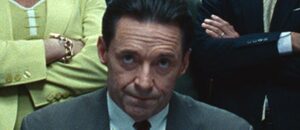Rocketman
Movie Rating:
4.5
The rise of Elton John to superstardom is indicative of much of the 1970s music industry. Rocketman is a tale of raunchiness and excess, hubris and humiliation, told many times before about many artists.
What sets the film apart from, say, last year’s Bohemian Rhapsody (which was completed without credit by the same director, Dexter Fletcher) is how radically the movie reshapes not only the songs but the events to create the feeling if not the pure facts of Elton John’s life.
The magic act relies upon the talents of Taron Egerton, and luckily the actor/singer is more than up for the task. He’s a revelation here, embodying the character not as mere mimicry but as something evocative and powerfully original. This is emphasized by the fact that Egerton is singing, not miming to original tracks, songs that have in many cases been quite radically rearranged. Changes of tempo and instrumentation aren’t simply for flourish; they’re the modus operandi of the picture – crafting a series of moments that speak to the legend of Elton John without being stultified by biographical rigor.
The result uses the mechanisms of the musical bio-pic to present heightened versions of events, stories about stories in Elton’s life. With this second level of distance, the film allows itself to revel in fantasy – a crowd levitating, an origin story easily understood and tracked – removing many of the tangential industry and personal elements that needed to coalesce to spark the fire of Elton’s career. This isn’t to say there’s been a softening of the edges, for the darkness of the singer’s demons is very real. (To make the point manifest, we meet John regaled in sparkly devil’s horns.) These changes are all sympathetic to craft a storyline that’s coherent, engaging and convincing.
Jamie Bell, Richard Madden, and Bryce Dallas Howard play the key members of Elton’s retinue – lyricist, manager/lover, and mother –a core group that shape the man and his career. The film dances around (sometimes literally, and with great abandon) the early years, employing songs from many decades to imagine a given moment.
This freedom to reinterpret and recontextualize is key to the success of the film. It takes liberties to not hew to fact when it gets in the way of feeling, never worrying about whether a track was charting at a specific time means it cannot be used during that moment. The key to John and his lyrical collaborator Bernie Taupin is based in part of on a fundamental misreading by audiences. Elton has never sung about himself; he’s always sung Bernie’s life and words, as couched as they may be. Bernie was the real Rocketman, at least when the words were constructed. John’s role has always been to take that world and present it for us to embrace, convincing us through power of performance that somehow we were given insight into the singer and his inner thoughts.
The film isn’t without reservations. The last act rushes through, and the end credit reminders of what transpired subsequently are heavy-handed, especially when interspersed with photos explicitly showing how the movie mirrored real events. However, such nod to the audience’s desire for fact is forgivable, especially given all that’s built before.
As a broad, brash musical adventure, Rocketman succeeds brilliantly. What truly sends it to orbit is the wild and riveting performance by Taron Egerton. The actor inhabits the role in much the same way Reginald Kenneth Dwight inhabited the Elton John persona to bring forth a larger-than-life performer. With rich orchestration, many easter eggs for longtime fans, and a storyline that unapologetically shifts time and place to worry about emotional beats rather than journalistic facts, this celebration of the triumphs and tribulations of Elton John is an explosive delight.





